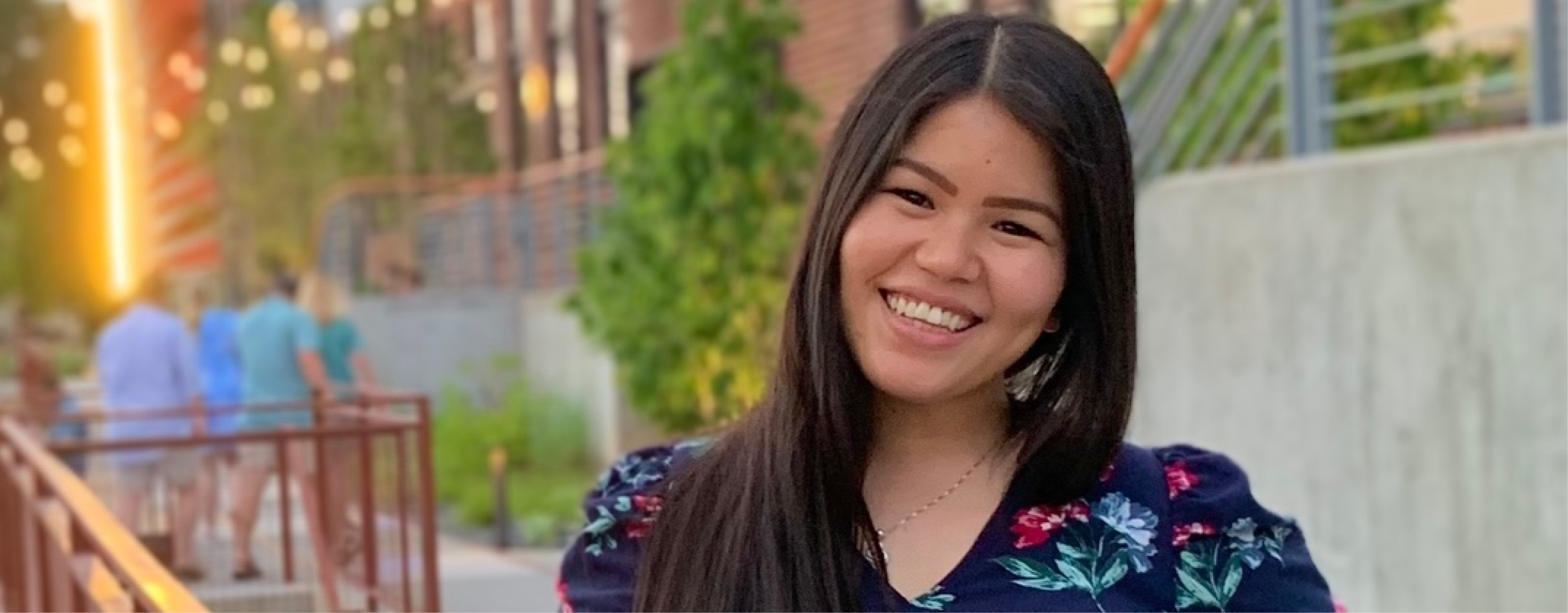Admitted students, confirm your enrollment
Prospective students, learn more

“As the humanitarian situation worsened, I felt more inclined to continue directing support to my community in Afghanistan. There’s nothing that we can do to change the systems of power, but we can help the families on the ground. This inspired me to turn the fundraiser into a nonprofit.”
When Shakila Ali was five years old, her family arrived in the U.S. as refugees from Afghanistan. As members of the Hazara minority, they left to escape the historical targeting of their people and a humanitarian emergency that was unfolding at the time. Her personal background tied with her long-term interests in medicine and human rights led her to public health and more specifically, global health.
In 2020, as she was writing a policy brief in class on the lack of emergency health care in Afghanistan, Ali began thinking about what she could do immediately to reduce suffering long term. “I decided, if I have the skills, opportunity, and capacity to do something to address their needs and reduce suffering, then I will,” she says.
Using her network of friends, classmates, and peers, she started a grassroots fundraising campaign to provide scholarships for young people in underserved communities in the country. With over 40 volunteers, they raised over $5,000 in one weekend. After this success, she decided to make the campaign annual.
Everything changed in 2021 during the second year of Ali’s program when, on the same weekend as the fundraiser, the Taliban took over and a humanitarian emergency began. Many international organizations left the country in a rush, and it was no longer possible to send aid. Ali was left shocked and worried for her community, as well as grieving family members she lost. This grief, along with her desire to assist her homeland, led her to create Doste Afghan Foundation, meaning “a friend of an Afghan.”
“As the humanitarian situation worsened, I felt more inclined to continue directing support to my community in Afghanistan,” says Ali. “There’s nothing that we can do to change the systems of power, but we can help the families on the ground. This inspired me to turn the fundraiser into a nonprofit.”
While tackling these initiatives in Afghanistan, Ali was leaning on her robust network of public health colleagues at Rollins, and utilizing brand-new skills she was learning in the classroom at Rollins, including those related to needs assessment and global humanitarian emergencies.
“The needs assessment component of this is so crucial,” says Ali. “Almost every Afghan in some way has been affected by the war, loss, grief, and other circumstances beyond their control, but some identities are even more affected and at risk. I wanted to make sure that we reach those who are most in need and hard to reach. We do a full needs assessment and interview to give families the opportunity to tell us about their situation and what they need.”